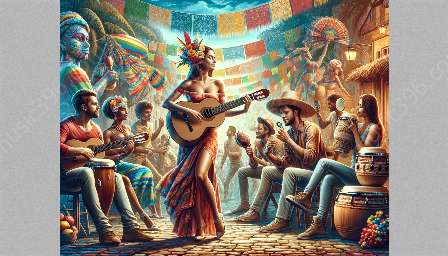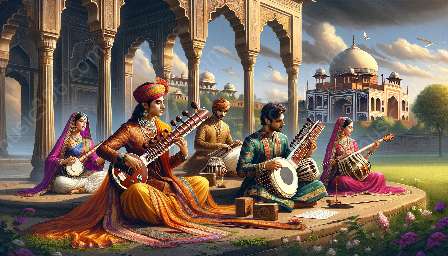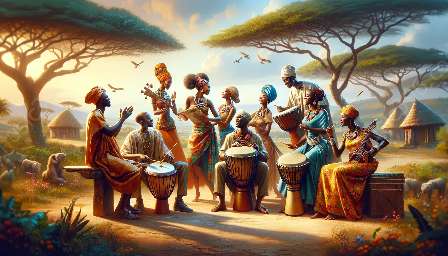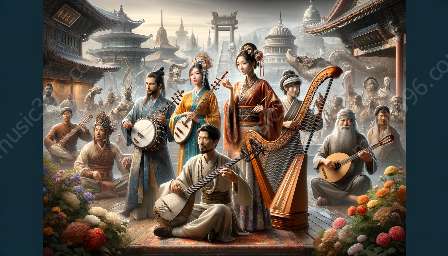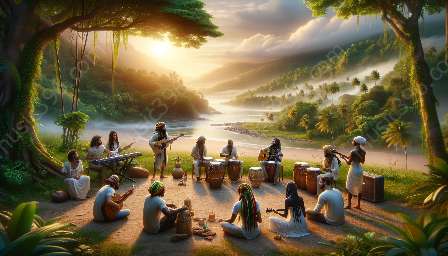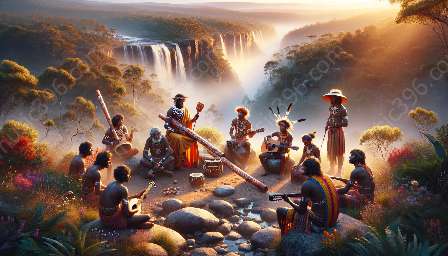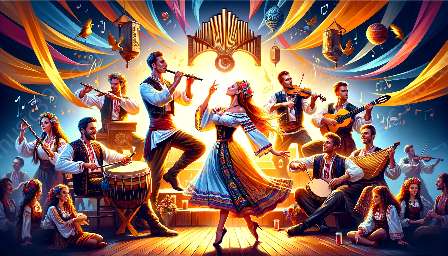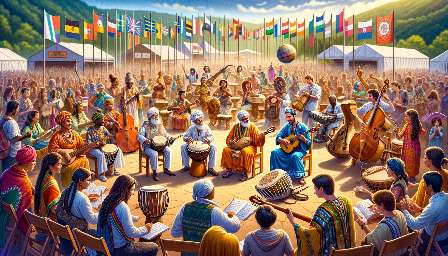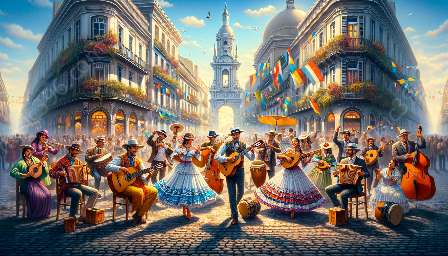Caribbean and Latin American music carry a profound cultural significance and a rich history steeped in tradition and innovation. From the infectious rhythms of salsa and reggaeton to the soulful melodies of bolero and samba, the music from these regions has captivated audiences worldwide.
In this topic cluster, we will delve into the intricate web of copyright and intellectual property laws that safeguard the creative works of musicians, songwriters, and other artists in the Caribbean and Latin America. We will also examine the intersection of these legal frameworks with the global phenomenon of world music.
The Cultural Landscape of Caribbean and Latin American Music
The Caribbean and Latin American regions boast an incredibly diverse musical landscape, shaped by centuries of indigenous, African, European, and other global influences. The rhythmic heartbeat of these musical traditions reverberates through genres such as salsa, merengue, bachata, cumbia, tango, bossa nova, and more. Each genre embodies a fusion of local rhythms, captivating melodies, and evocative lyrics that reflect the vivid tapestry of cultural heritage.
The fusion of indigenous, African, and European musical elements has given birth to a myriad of unique expressions, from the syncopated beats of Afro-Cuban jazz to the exuberant carnival rhythms of soca and calypso. The music of the Caribbean and Latin America transcends language barriers, inviting listeners to immerse themselves in its infectious energy and emotional depth.
Protecting Artistic Creations: Copyright and Intellectual Property Laws
Within the complex world of Caribbean and Latin American music, copyright and intellectual property laws play a crucial role in preserving the integrity of musical compositions, recordings, and performances. These laws provide legal protections for creators, ensuring they receive fair compensation for their artistic contributions and that their works are not used without permission.
Copyright laws govern the rights of composers, lyricists, and musicians, granting them exclusive control over the reproduction, distribution, and public performance of their music. In the digital age, these laws have extended to cover online streaming, downloads, and social media sharing, offering creators greater control over their works in the digital sphere.
Intellectual property rights also encompass the protection of sound recordings, allowing recording artists and record labels to safeguard their investment in producing and promoting music. This includes the licensing of musical works for use in films, television, advertising, and other media platforms, creating additional revenue streams for artists and rights holders.
Challenges and Opportunities in the Digital Era
The rapid evolution of technology and the global reach of digital platforms have presented both challenges and opportunities for the music industry in the Caribbean and Latin America. While the internet and streaming services have facilitated greater access to music, they have also raised concerns about unauthorized distribution and piracy, jeopardizing the livelihoods of artists and creators.
In response, collective management organizations and performance rights societies have emerged as key players in the enforcement and administration of music copyrights. These organizations work to ensure that songwriters and composers receive fair compensation when their music is performed publicly, whether in live concerts, radio broadcasts, or digital streaming platforms.
Additionally, the rise of cross-border collaborations and international music festivals has enabled Caribbean and Latin American artists to showcase their talents on a global stage, reaching new audiences and forging cultural connections that transcend geographical boundaries. This interconnectedness has contributed to the growing influence of world music, which celebrates diverse musical traditions from around the globe.
Global Impact: World Music and Cultural Exchange
World music serves as a bridge between different cultures, uniting people through the universal language of music. In the context of Caribbean and Latin American music, world music has become a platform for artists to share their heritage and creativity with a global audience, fostering a deeper appreciation for the cultural richness of these regions.
Through collaborative projects and music festivals, artists from the Caribbean and Latin America have embraced the vibrant diversity of world music, blending traditional elements with contemporary sounds to create boundary-defying compositions. This fusion of musical styles has resonated with fans worldwide, transcending geographical and linguistic barriers to create a sense of shared experience and communal celebration.
As world music continues to captivate audiences, it amplifies the voices of Caribbean and Latin American musicians on the global stage, shedding light on their unique perspectives and narratives. This global recognition not only promotes cultural exchange but also emphasizes the importance of safeguarding the intellectual property rights of these artists, ensuring their contributions are valued and respected across borders.
Preserving Heritage, Nurturing Creativity
In conclusion, the intertwining threads of copyright, intellectual property, and world music converge to shape the vibrant tapestry of Caribbean and Latin American music. From the legal protections that safeguard artistic creations to the transcultural resonance of world music, these elements are essential in preserving the heritage and nurturing the creativity of musicians and artists across the region.
By understanding and respecting the legal frameworks that underpin the music industry, individuals and organizations can contribute to a thriving ecosystem that honors the unique sounds and stories of Caribbean and Latin American music. As we continue to celebrate the beauty of this musical heritage, let us also champion the rights and recognition of those who enrich the world with their artistic expressions.

